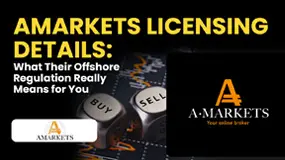Abstract:The financial markets are always moving, reacting to news, data, and changes in how people feel about the economy. Understanding what causes these changes is important for anyone involved in trading or investing

The financial markets are always moving, reacting to news, data, and changes in how people feel about the economy. Understanding what causes these changes is important for anyone involved in trading or investing.

One of the main reasons markets move is the flow of money from one place to another. This movement, known as capital flow, can be caused by real economic needs, such as companies buying foreign assets or investors looking to protect their money. But just as often, it's peoples expectations about the future that drive market prices. What traders think will happen can be just as powerful as what is actually happening.
A country‘s Gross Domestic Product, or GDP, is one important factor. GDP shows how much a country’s economy is growing or shrinking. When GDP is strong, it usually means the economy is healthy, which can make investors feel confident and more likely to buy that countrys currency or stocks.
Interest rates are another key part of market movement. Central banks, like the Bank of England or the U.S. Federal Reserve, set these rates to help control inflation and support the economy. Higher interest rates often strengthen a countrys currency because they offer investors better returns.
Employment data also plays a big role. The number of people with jobs, or the unemployment rate, can show how strong or weak an economy is. In the United States, for example, the release of the Non-Farm Payroll report each month often causes a lot of market activity. If the report is very different from what people expected, markets can move sharply in a short period of time.
Trade balances are also important. This means the difference between what a country exports and imports. If a country sells more goods than it buys, it usually has a trade surplus, which can strengthen its currency. On the other hand, a trade deficit might suggest economic trouble ahead.
Inflation is another major factor. When prices rise too quickly, it can hurt consumer spending and business investment. Central banks often raise interest rates to try to slow inflation, and this can also affect the value of currencies and stocks.
Unexpected events, like wars, natural disasters, or political problems, can also shake the markets. These situations often create uncertainty, which makes investors more careful. In these times, many people move their money to safer investments, like gold or government bonds.
To stay informed, traders often use an economic calendar. This tool shows upcoming news and data releases that might affect the markets. Knowing when these events will happen helps traders prepare for possible price changes.
Some traders focus on news trading, where they make decisions before or after important news comes out. If the actual data is very different from what the market expected, prices can move quickly. Others avoid trading during news events because of the risk of sudden changes.
Finally, market sentiment refers to how people feel about the market, also has a big impact. Even if the data is solid, fear or excitement can lead to big swings in prices. Learning to read market sentiment helps traders better understand what might happen next.
In the end, financial markets are shaped by a mix of real facts and human emotions. By keeping track of key economic events and understanding how people react to them, traders can make better decisions and reduce risk.











